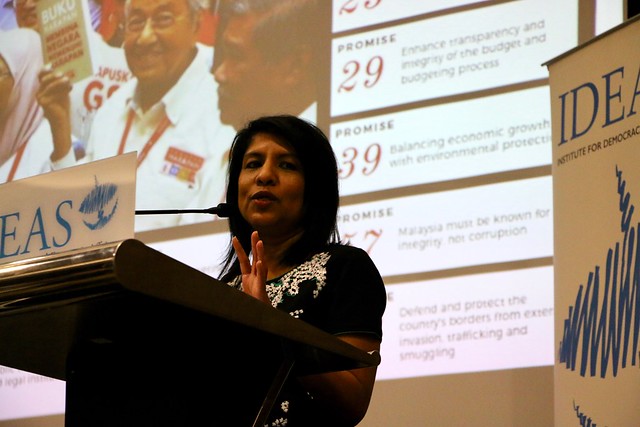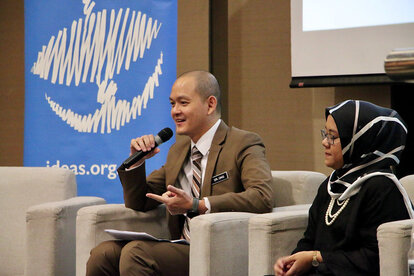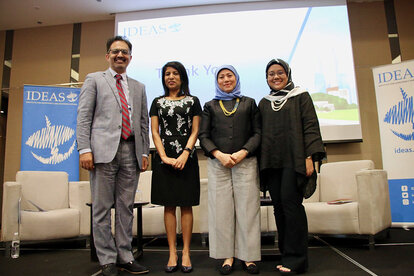Event
The Next Four Years : What Now for Malaysia?

The Institute for Democracy and Economic Affairs (IDEAS) released the second edition of Projek Pantau, a report card that assesses the government’s performance in implementing its promises in the Buku Harapan. The report was launched at the public forum “The Next Four Years: What Now for Malaysia?”, held today at Connexion Conference and Event Centre, Bangsar South.
Promises that are “achieved” and “on track” include:
-
Abolishment of GST
-
Raising the minimum wage in Sabah and Sarawak to be equal to that in the Peninsula
-
Significant new support for the growth of Small and Medium Enterprises (SMEs)
-
An ambitious plan to tackle corruption and reform the public procurement process through the National Anti-Corruption Plan (NACP) 2019 – 2023
Promises that are “in trouble” include:
-
The government has produced a comprehensive strategy for affordable housing, but is far from its target of one million new affordable homes
-
Government spending on public healthcare is not on track to achieve 4% of GDP
-
There are no concrete steps to reform and re-examine the role of Government-Linked Companies (GLCs)

YB Dr. Ong Kian Ming, Deputy Minister for International Trade and Industry, in his keynote address at the forum acknowledged the importance of keeping the government accountable to the promises it made in the Buku Harapan. YB Dr. Ong then emphasised that to ensure economic growth, Malaysia needs to attract high quality FDI, focus on the 4th Industrial Revolution and the Digital Economy, treat sustainability as a new driver of economic activity and to ensure the wellbeing of the B40. While Malaysia’s internal economic factors are doing well, external factors such as the US-China trade and technology wars might be detrimental to the country. YB Dr. Ong then urged civil society and the general public to keep reminding the government of their promises and to contribute new ideas for improvement in government policy.
The panellists for the forum were YB Dato’ Sri Hajah Nancy Shukri, Member of Parliament for Batang Sadong, Cynthia Gabriel, Executive Director of the Center to Combat Corruption and Cronyism (C4) and Ali Salman, CEO of IDEAS.

YB Nancy Shukri emphasised the importance of not neglecting Sabah and Sarawak in Malaysia’s march for progress in the next four years. She reiterated that Sarawak is the biggest contributor to federal funds and reminds the government to be fairer in distributing the country’s wealth. YB Nancy also mentioned the importance of honouring the Malaysia Agreement 1963, not through piecemeal measures, but through comprehensive reforms.
Cynthia Gabriel presented C4’s pH litmus tracker and emphasised not only the urgent need to tackle corruption, but also to keep the people abreast of the government’s plans for reform. Cynthia mentioned the importance of institutionalising the reforms promised, especially in public institutions. Politicising government decisions must stop, and the use of race and religion to achieve political ends must end.
On the economy, Ali Salman emphasised the importance of business regulations that are not too restrictive. Ali mentioned the need to be more decisive about ratifying the CPTPP, using Vietnam as an example of a country that has benefited from signing the CPTPP. Ali then highlighted the importance of having a balanced budget for the government in the next four years.
“Overall, we acknowledge that some reforms have taken a back seat due to internal political pressures. This is unfortunate and we hope to see progress in the near future. The government also needs to communicate their progress better in order to let the people know of its achievements so far.” said Faiz Zaidi, Executive in the Democracy and Governance Unit and author of the report.
Original article and the link to Project Pantau Report Card No. 2 :
http://www.ideas.org.my/ideas-releases-second-edition-of-projek-pantau-…